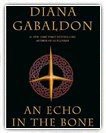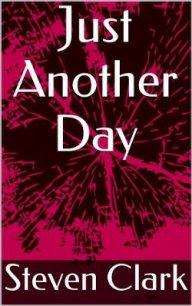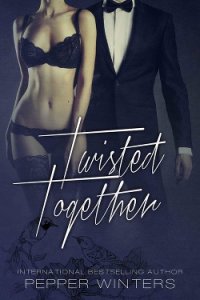Dragonfly In Amber - Gabaldon Diana (книги полные версии бесплатно без регистрации .TXT) 📗
“It’s true,” she said. A tinge of color came back into the pallid cheeks. “Would your mother lie to you?” And she closed her eyes once more.
Roger reached down to switch off the electric fire. The night was cold, but he could stay no longer in the study, his temporary sanctuary. He still felt groggy, but he couldn’t delay longer. The decision had to be made.
It had been dawn before the police and the doctor had finished their work the night before, filling in their forms, taking statements and vital signs, doing their best to explain away the truth. “Blessed are they who have not seen,” he thought again, devoutly, “but who have believed.” Especially in this case.
Finally, they had left, with their forms and badges and cars with flashing lights, to oversee the removal of Greg Edgars’s body from the ring of stone, to issue a warrant for the arrest of his wife, who, having lured her husband to his death, had fled the scene. To put it mildly, Roger thought dazedly.
Exhausted in mind and body, Roger had left the Randalls to the care of the doctor and Fiona, and had gone to bed, not bothering to undress or turn back the quilts, merely collapsing into a welcome oblivion. Roused near sunset by gnawing hunger, he had stumbled downstairs to find his guests, similarly silent, if less disheveled, helping Fiona with the preparation of supper.
It had been a quiet meal. The atmosphere was not strained; it was as though communication ran unseen among the people at the table. Brianna sat close to her mother, touching her now and then in the passing of food, as though to reassure herself of her presence. She had glanced occasionally at Roger, shy small looks from beneath her lashes, but didn’t talk to him.
Claire said little, and ate almost nothing, but sat quite still, quiet and peaceful as a loch in the sun, her thoughts turned inward. After dinner, she had excused herself and gone to sit in the deep window seat at the end of the hall, pleading tiredness. Brianna had cast a quick glance at her mother, silhouetted in the last glow of the fading sun as she faced the window, and gone to help Fiona in the kitchen with the dishes. Roger had gone to the study, Fiona’s good meal heavy in his stomach, to think.
Two hours later, he was still thinking, to remarkably little effect. Books were stacked untidily on the desk and table, left half-open on the seats of chairs and the back of the sofa, and gaping holes in the crowded bookshelves testified to the effort of his haphazard research.
It had taken some time, but he had found it – the short passage he remembered from his earlier search on Claire Randall’s behalf. Those results had brought her comfort and peace; this wouldn’t – if he told her. And if he were right? But he must be; it accounted for that misplaced grave, so far from Culloden.
He rubbed a hand over his face, and felt the rasp of beard. Not surprising that he had forgotten to shave, what with everything. When he closed his eyes, he could still smell smoke and blood; see the blaze of fire on dark rock, and the strands of fair hair, flying just beyond the reach of his fingers. He shuddered at the memory, and felt a sudden surge of resentment. Claire had destroyed his own peace of mind; did he owe her any less? And Brianna – if she knew the truth now, should she not know all of it?
Claire was still there at the end of the hall; feet curled under her on the window seat, staring out at the blank black stretch of the night-filled glass.
“Claire?” His voice felt scratchy from disuse, and he cleared his throat and tried again. “Claire? I… have something to tell you.”
She turned and looked up at him, no more than the faintest curiosity visible on her features. She wore a look of calm, the look of one who has borne terror, despair, and mourning, and the desperate burden of survival – and has endured. Looking at her, he felt suddenly that he couldn’t do it.
But she had told the truth; he must do likewise.
“I found something.” He raised the book in a brief, futile gesture. “About… Jamie.” Speaking that name aloud seemed to brace him, as though the big Scot himself had been conjured by his calling, to stand solid and unmoving in the hallway, between his wife and Roger. Roger took a deep breath in preparation.
“What is it?”
“The last thing he meant to do. I think… I think he failed.”
Her face paled suddenly, and she glanced wide-eyed at the book.
“His men? But I thought you found-”
“I did,” Roger interrupted. “No, I’m fairly sure he succeeded in that. He got the men of Lallybroch out; he saved them from Culloden, and set them on the road home.”
“But then…”
“He meant to turn back – back to the battle – and I think he did that, too.” He was increasingly reluctant, but it had to be said. Finding no words of his own, he flipped the book open, and read aloud:
“After the final battle at Culloden, eighteen Jacobite officers, all wounded, took refuge in the old house and for two days, their wounds untended, lay in pain; then they were taken out to be shot. One of them, a Fraser of the Master of Lovat’s regiment, escaped the slaughter; the others were buried at the edge of the domestic park.”
“One man, a Fraser of the Master of Lovat’s regiment, escaped…” Roger repeated softly. He looked up from the stark page to see her eyes, wide and unseeing as a deer’s fixed in the headlights of an oncoming car.
“He meant to die on Culloden Field,” Roger whispered. “But he didn’t.”
Acknowledgments
The author’s thanks and best wishes to:
the three Jackies (Jackie Cantor, Jackie LeDonne, and my mother), guardian angels of my books; the four Johns (John Myers, John E. Simpson, Jr., John Woram, and John Stith) for Constant Readership, Scottish miscellanea, and general enthusiasm; Janet McConnaughey, Margaret J. Campbell, Todd Heimarck, Deb and Dennis Parisek, Holly Heinel, and all the other LitForumites who do not begin with the letter J – especially Robert Riffle, for plantago, French epithets, ebony keyboards, and his ever-discerning eye; Paul Solyn, for belated nasturtiums, waltzes, copperplate handwriting, and botanical advice; Margaret Ball, for references, useful suggestions, and great conversation; Fay Zachary, for lunch; Dr. Gary Hoff, for medical advice and consultation (he had nothing to do with the descriptions of how to disembowel someone); the poet Barry Fogden, for translations from the English; Labhriunn MacIan, for Gaelic imprecations and the generous use of his most poetic name; Kathy Allen-Webber, for general assistance with the French (if anything is still in the wrong tense, it’s my fault); Vonda N. McIntyre, for sharing tricks of the trade; Michael Lee West, for wonderful comments on the text, and the sort of phone conversations that make my family yell, “Get off the phone! We’re starving!”; Michael Lee’s mother, for reading the manuscript, looking up periodically to ask her critically acclaimed daughter, “Why don’t you write something like this?”; and Elizabeth Buchan, for queries, suggestions, and advice – the effort involved was nearly as enormous as the help provided.




